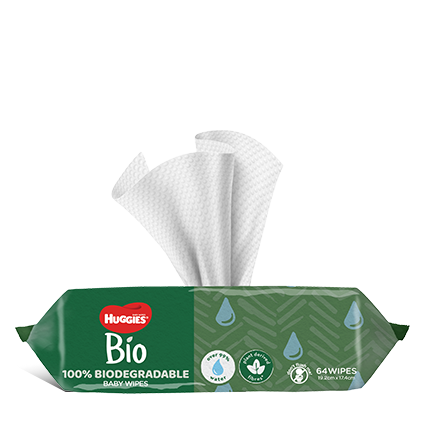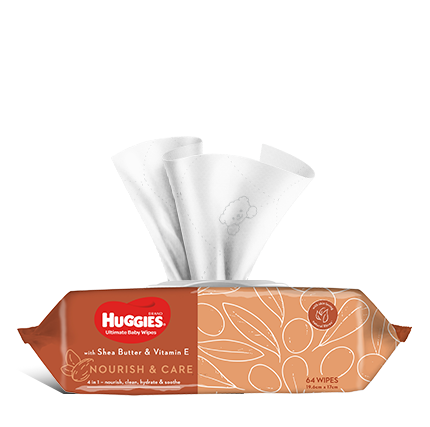More exploring and activity this month as your baby learns how to propel themselves across the floor. They may shuffle along on their bottom, commando crawl or even creep along with most of their weight on their tummy. Whichever way works for them, they will be building on their skills in movement. Nine month old babies have lots to see and do. Even though that speck of dust on the floor seems rather uninteresting to the rest of us, it demands picking up and examination if there is a 9 month old around.
Many parents say they learn to see the world in a whole new light when there is a baby in the house. The simple pleasures of discovery and learning how to do things can have a contagious effect and cause real excitement in a household.
Feeding and Sleeping
This is a messy age and stage. Your baby will be keen to try and feed themselves and it will be difficult to keep them clean when they eat. It is important that you let your baby explore their food and learn for themselves what is involved in transferring food to their mouth. Meal times are not about parents controlling the process and the earlier your baby learns how to feed themselves, the better. Let them pick from a variety of finger foods, aim to offer a range of colours, textures and tastes and let them choose for themselves what they eat and how much they want. You will still need to spoon pureed and mashed foods into their mouth but give them a spoon to experiment with as well.
Sleeping continues to be an important process for your little one at 9 months. They may drop from 3 to 2 sleeps a day but in the transition, could be cranky and become overtired. Be sensitive to your baby’s cues or signals that they are tired and need to sleep. Rubbing their eyes, grizzling, putting their head on your shoulder and having little tolerance for games are classic signs.
Avoid situations where they are likely to become overtired. Although it can be limiting, staying out for long periods and expecting your baby to stay awake past their usual sleep times is not fun for anyone. This age and stage will pass but for now, you will both benefit from having a fairly predictable daily routine.
Behaviour
You may notice some high pitched squeals this month as your baby further develops their vocal range. Some babies are loud, just as some are more passive and quiet. Watch your baby’s responses when there is a loud sudden noise to see if their eyes move equally and can focus on an object. Be aware of how they move their body. Parents are usually the first to notice if there is a developmental or physical problem with their baby. In general, early assessment and treatment of issues leads to better outcomes.
If you are concerned about any aspect of your baby’s development seek professional advice. Even if you have a nagging, uncertain doubt there is something not quite right, this is reason enough to have your baby checked.
Developmental Milestones
Watch your baby as they learn to pull themselves to stand and develop skills in balancing. You’ll have to watch them closely because there will be times when they think they are more clever than they are. When you are sitting down yourself, they may use your legs as a ladder to climb up so think about how you react when they do this. Are you encouraging and rewarding their efforts or frightened they will fall?
Babies are very perceptive when it comes to their parent’s emotions, so try to be positive and reassuring when they are learning new skills. It is normal for parents to feel some anxiety when their babies could potentially hurt themselves but aim to see their efforts in a positive way.
They will become more proficient at sitting this month and be able to get into a sitting position from their tummy. All of this is dependent on floor time so ensure your baby has lots of opportunity.
Growth
If none of your baby’s teeth have come through yet, then this may be the month. Teething eruption times are highly individual and a wait and see approach is usually recommended. Take your baby with you for your own dental checks so you can role model what is involved.
See our baby teething chart to create a great keepsake
You could find yourself buying size 1 clothes at this stage, especially if your baby is large. Alternately, you could find you are dressing your baby in the same clothes they’ve had for months. Children do literally grow overnight and when they are asleep. This is when they release growth hormones and conserve their energy. They also tend to grow more quickly in spring and summer and slow down a little in the cooler, winter months. As long as your baby is still gaining weight, is happy and energetic and reaching their milestones, try not to be concerned.
Percentile (growth) charts are an ideal way of making sure babies are doing what they should be doing in terms of their growth. Check with your child health nurse and ask them to show you how your baby is tracking along their individual percentiles.
Keeping Well
No immunisations this month so as long as your baby has had their vaccinations at 2, 4, and 6 months then the next ones are not due until 12 months. If for some reason these have not been done, don’t delay. Go to your local community health centre or make an appointment with your GP. Check link to our immunization chart for specific, age appropriate information on vaccinations.
If you are bottle feeding, you may want to stop sterilizing the bottles and feeding equipment now. But remember to wash the bottles etc very carefully, in clean, hot and soapy water and rinse well. Make sure you are storing your baby’s formula in the main body of the fridge, not the door and discard any unused formula after 24 hours.
Play and Interaction
You’ll find your 9 month old is just as interested in a rolled up piece of paper as an expensive toy this month. It is colour and texture, noise and shape which will attract your little one to an object. Get down on the floor and scan the environment for potentially dangerous items. While you’re down there play chasey and silly games with your baby. Hide toys so they can find them easily and generally focus on having fun. The best games are often spontaneous and made up on the spot. Look for your baby’s reactions and use them to guide what you do next. Sensitive parents who are tuned into their babies help them to learn about what communication and empathy. Remember, your baby is not a critic and can only benefit from your interactions.
What About Mum?
If you are still carrying pregnancy weight, now may be the month to think about shifting it by increasing your daily exercise. There is no secret to successful weight loss other than using up more energy than is being taken in with food. If you aren’t a gym fan, then go for walks, bike rides or even a swim. Look for some variety and take a friend with you.
Sustaining motivation is the key, as well as seeing some results for hard work. Reward your efforts with some new clothes or a treat which has some intrinsic value to you.
Your Emotions
You are likely to reflect back on your pregnancy this month and compare the 9 months of gestation with the same period of time since your baby was born. Take the time to think about the enormous changes your family, your body and life in general has experienced in just 18 months.
If you have older children they will be well used to the new baby by now and you will all have learned how to accommodate another family member. Some family therapists believe strongly in the concept of birth order and how it impacts on individual behaviour. Although children can share the same parents and genetic inheritance they can still be remarkably different. Try not to compare your children and learn how to accept them for their own unique characteristics.
Your Sleep Needs
If you still need to get up through the night to attend to your baby, check the sleep section on the Huggies web-site. Your baby is unlikely to need to feed overnight at 9 months so if they still are, think about your own responses to their waking. Improvement often starts with parents changing what they are doing themselves.
Even if you were a particularly heavy sleeper before you had children, you’ll find yourself easily roused now. Sleep is another factor which changes considerably after children are born and many parents, particularly mothers, find they need to adjust to the changes in their body’s internal body clock. If you can’t drop off to sleep easily, consider how much caffeine you are having. Exercising late in the day, eating meals which are too heavy, napping late in the afternoon can all impact on the body’s ability to drop off to sleep easily at night.
Your Relationships
If you are feeling isolated, join a mother’s group. Your baby will be more portable now and the early, exhausting days have passed. Connecting with other parents is important and babies have a unique skill in bringing together parents who may not have otherwise met. Try to expose your baby to different age groups so they can learn about human diversity. It is the repetitive, daily exposure to everyday life which will help your baby learn about how different the world can be.
Last Published* May, 2024
*Please note that the published date may not be the same as the date that the content was created and that information above may have changed since.




















